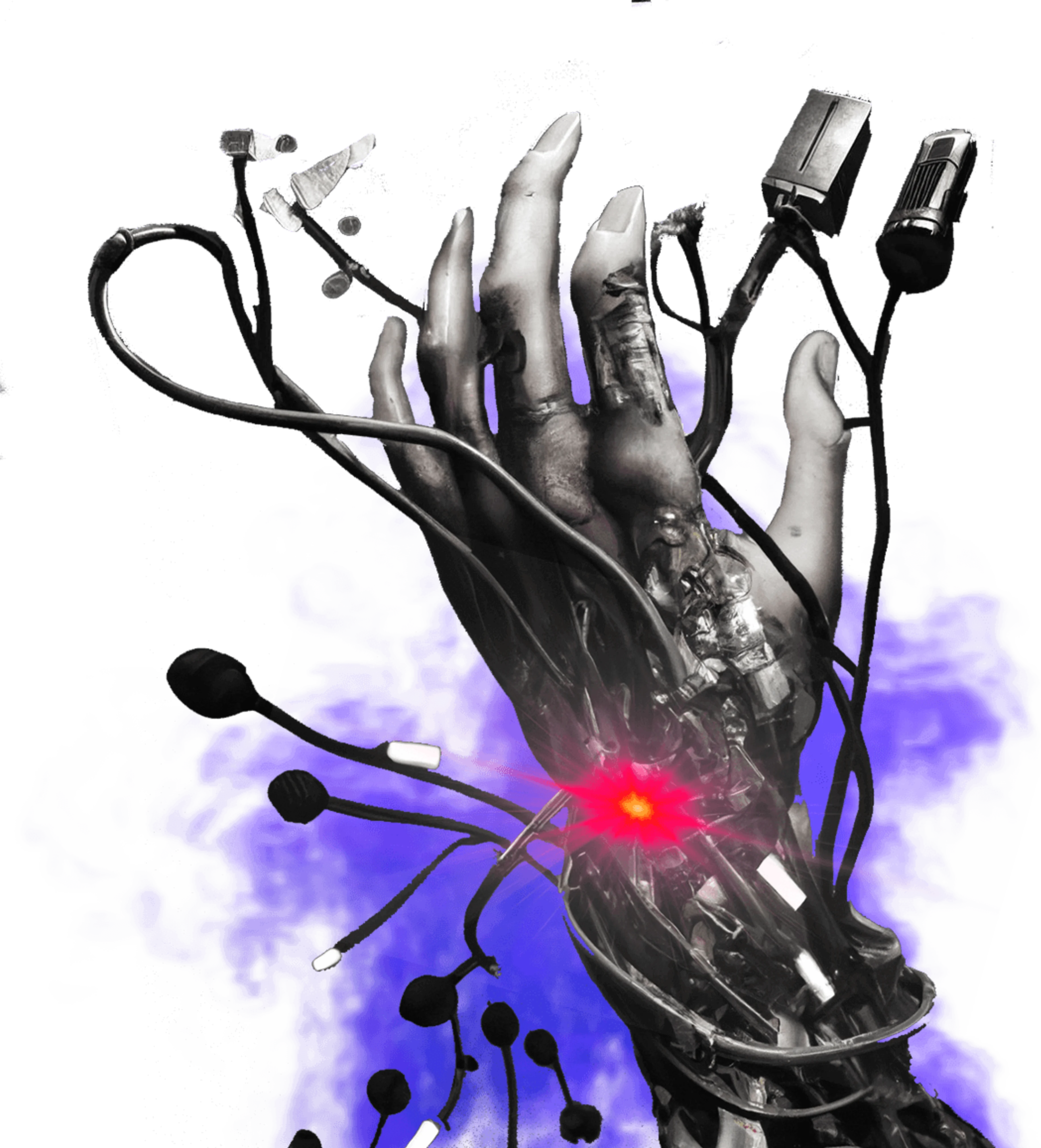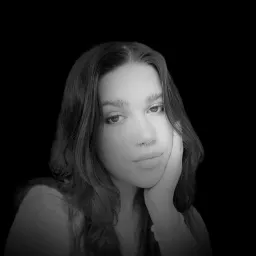Let’s imagine ourselves, ten years ago, looking forward to the future of technology. In 2023, could we see an autonomous robot that cuts the grass for us? Probably. I bet some people wished for gadgets like that. We could probably predict the future of driving, too. Robotic cars that require minimal human effort to get from A to B. But I wonder, would we have predicted a writer’s strike in Hollywood would take place, effectively announcing a war between humans and robots, as the advancement of AI threatens to devalue the work and purpose of writers and creators?
AI is the stuff of sci-fi dreams. No doubt a tremendous feat of technological advancement and human creativity, artificial intelligence is a paramount marker of the modern age and is set to change the world as we know it. From the viral image of the Pope in a bubble coat to robotic postal workers and a lucrative market of computer-generated art, AI is on a course to permeate every corner of human life. The dawn of automation can be thrilling; to some a gift that simply keeps on giving. But to others, the progression of AI is nightmarish and signals to technology becoming humanity’s next biggest threat.
Artificial intelligence has a foreboding capacity to replace most human functions and efforts. The world seems to be falling down a pernicious path, coasting towards automation in the name of efficiency and productiveness. As our lives become more demanding, self-powered shops and lawnmowers will soon become the new norm. A new-found privilege that allows us more time to dive into a carefully curated Netflix list that some algorithm has cooked up for us. To those of us who feel time slithering away with each glance at our Apple watches, AI is exciting, and perhaps, will become a necessity for getting things done.
But as gadgets become more autonomous and uncannily human-like, I can’t help but be worried about the future of the qualities, the quirks, and the very essence of what AI seeks to replace: what happens to humanity?
Being exposed to situations that are not easy allows us to grow; this evolution will be gravely hindered if we continuously rely on a computer to fix our problems.
As much as relinquishing complete control to a self-driving car frightens me, I am most worried about tools like Chat-GPT. The bot that seems to be on everyone’s lips was created in late 2022 by the company OpenAI. Only a quick Google search away lies a constant flow of open communication with an AI-generated bot that can respond to various commands and prompts, answering in a matter of seconds. Chat-GPT can produce English essays, cover letters, poems, and emails. Your wish is AI’s command. Chat-GPT will even edit a draft that you submit and enhance your arguments, perspective, and style to create a refined copy of your work.
The responses generated are eerily human-like, too. Armed with an endless encyclopaedia and quick, elegant responses, The Atlantic argues that ‘what GPT can produce right now is better than the large majority of writing seen by your average teacher or professor.’ With a million signed up to Chat-GPT in the first five days of its release, the bot seeks to be the new calculator for writing-based tasks.
So, if we now have the technological capabilities to write essays on Shakespeare and to skilfully craft the fiftieth cover letter submitted this month, why wouldn’t we grab it with both hands? Why bother when a bot can do it in seconds?
Although tools like Chat-GPT significantly decrease the time and effort spent on a task for the average overly stimulated and busy human, it is a startling cop-out. The rise in the popularity of Chat-GPT presents a stark threat to the future of education and the development of skills like writing and critical thinking.
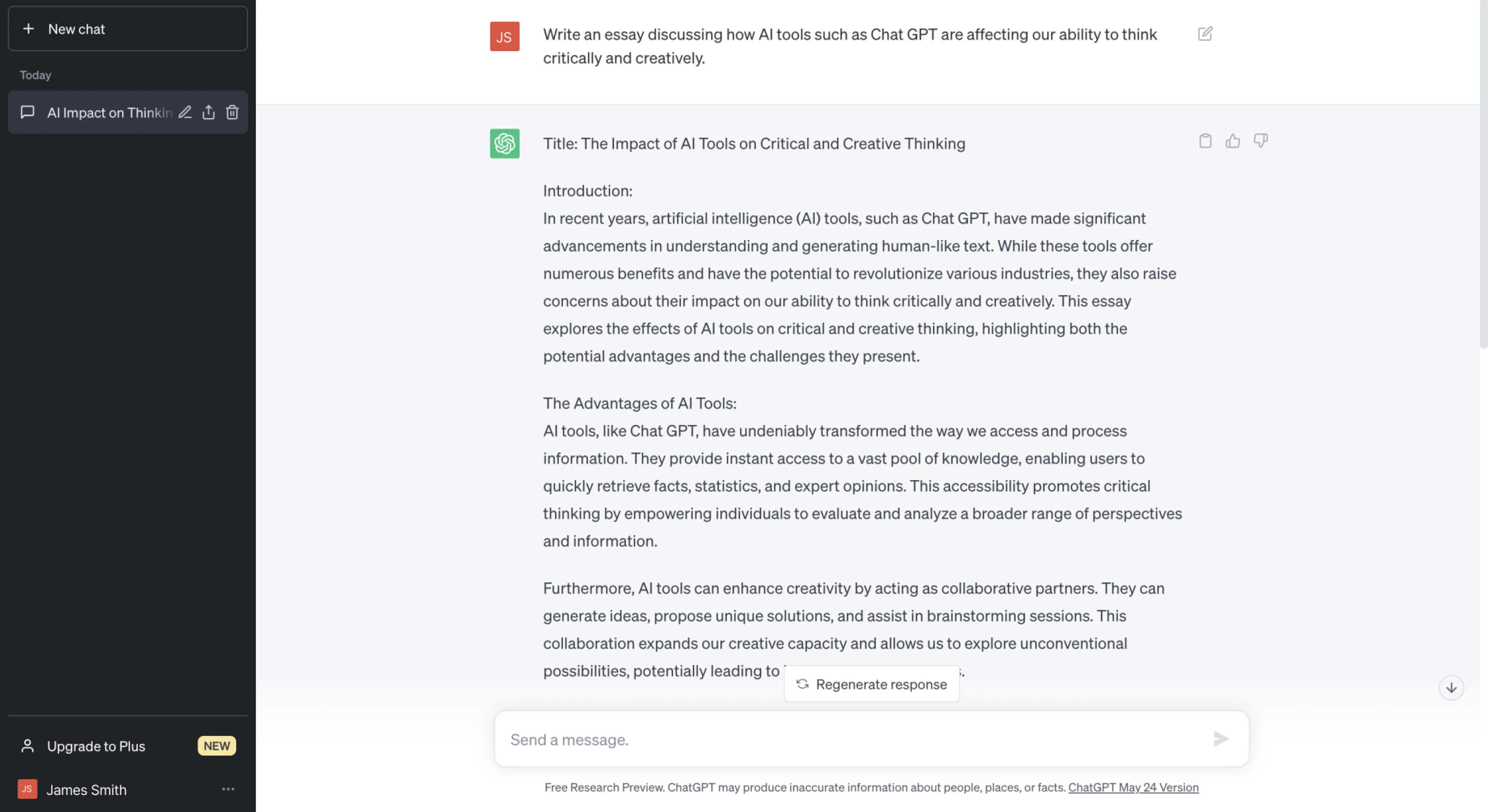
Anxieties of teachers have cropped up everywhere in the news, with article headlines like ‘Chat-GPT will end high school English’ gloomily announcing the discernible threat of AI to devalue the importance of writing, analysis, and creativity. Not to mention the complete unfairness of one student labouring over a final-year essay whilst others score high grades with a computer-generated response. But cheating will happen in every school, and most teachers have to acclimate to becoming hyper-aware of the difference between an AI-crafted essay and a human one. With intelligent software and hawk-eyed teachers, this problem can be somewhat avoided, reliant on extra funding and resources, that is. What alarms me the most is the loss of skill that this ‘advancement’ in technology will inevitably lead to.
Writing – whether it be a journal entry, an email, or a dissertation – is a salient skill. Writing is an important communicative agent that helps us to not only express ourselves but to connect, profoundly, with the world around us. It is the tool of philosophers, artists, activists, and diplomats that is centrifugal to social and political change. The function of writing is not just to meet a deadline or to get a good grade. Writing is a vehicle in which critical thinking, creativity, nuance, and perception can flow through and excel. It is critical to humanity.
I understand that not everyone feels they are a good writer and that to some students who struggle in essay-based subjects, Chat-GPT is a godsend. But, especially for those students, taking the time to work on their writing and approach to language and communication is even more important than for those who ‘get it.’ The dependency on AI that will inevitably build up is only going to drive students away from understanding how significant it is to develop an ability to construct their thoughts into expressive responses, use communication as a bridge, or keep flexing the critical thinking muscle so that we stay aware of the systems and institutions that surround us. Writing is an imperative strength that lasts way longer than the classroom does.
The future for creators is somewhat bleak with the rise of AI. The recent Writers Guild Strike in Hollywood is, amongst other things, to protest against the devaluation and replacement of writers in favour of AI. For the future of creativity to be in the hands of emotionless machines is scary: great art relies on the human behind it. I’m sure we’ve all rang up a helpline once or twice to be annoyingly met with a robotic voice. Familiar with the wish that we ‘could speak to a real person’ rather than a programme made up of binary answers, which skips over the nuances and subtleties unique to the human experience. Is that the road the arts and culture are destined to go down?
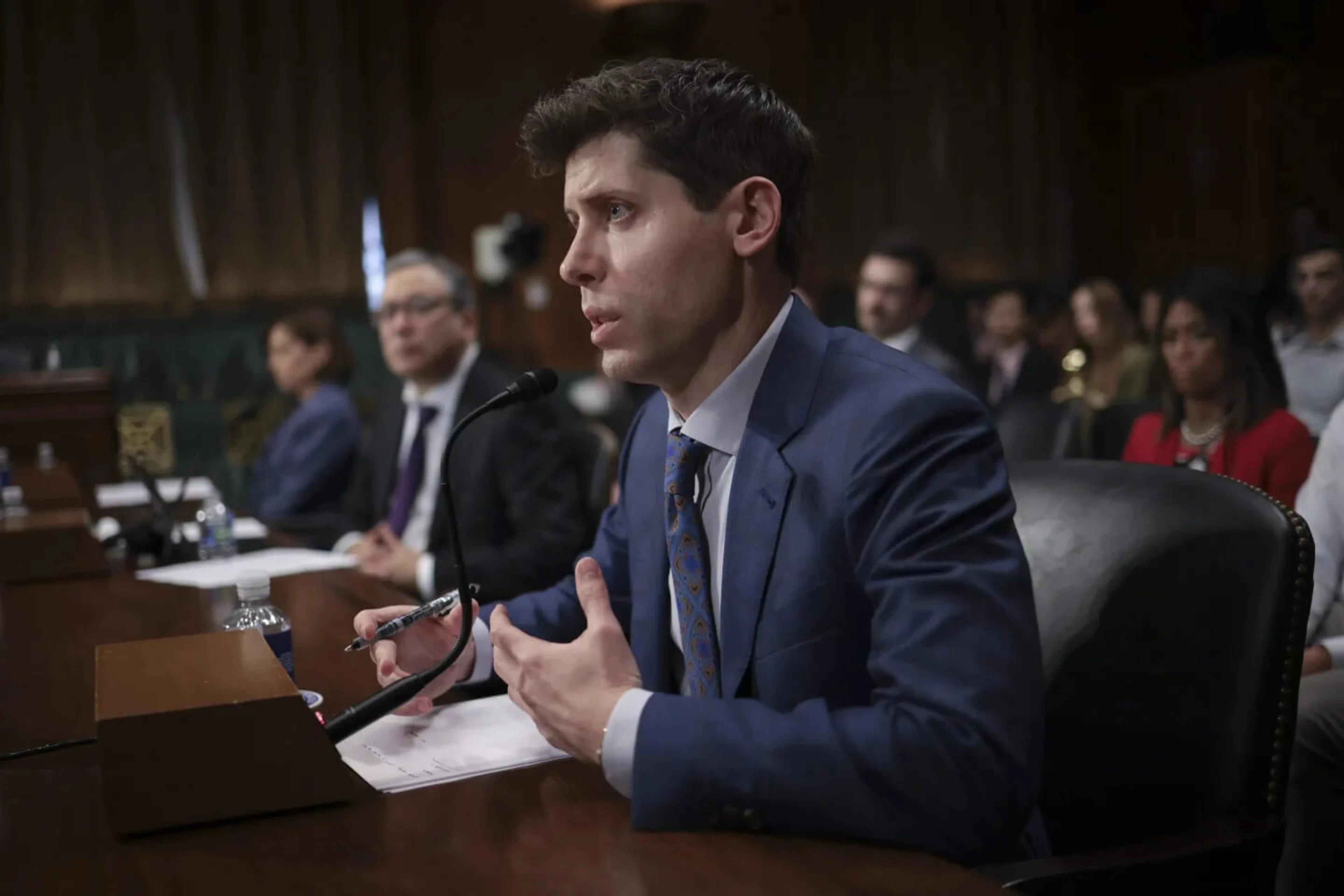
One approach to the problem is to work with AI: an ‘if you can’t beat ‘em, join ‘em’ technique. This is inevitable. No one can stop AI, and to look at technology as a complete blight on our future is too pessimistic to deal with. But, like everything, there needs to be a balance. One preferably more heavily weighted on developing and advancing skills without a robot doing it for us in 10 seconds. I’ve known people to ask Chat-GPT to help them to write an email response to a colleague. An easy fix, sure, but what happens if the problem were to arise in real life without the crutch of a bot? How will we communicate then? Being exposed to situations that are not easy allows us to grow; this evolution will be gravely hindered if we continuously rely on a computer to fix our problems.
Maybe there is a compromise that can be forged between humans and robots. Although Chat-GPT can cook up a quick poem or essay, there is a noticeable absence present in its responses. Chat-GPT can create stylistic and sophisticated work but cannot (yet) match up to having a human produce it; that je ne sais quoi rooted in human emotion and experience. Calls for synergy, to use AI as help rather than to oppose it, could be another hurdle we inevitably step over as we evolve in the digital age. But the threats stay ever-present and loom over like a dark cloud. With jobs such as journalism and copywriting at risk, we’re looking at making a significant section of our society obsolete. We look toward a future where robots and computers are prioritised over humans as they carry the job out quicker to maximise profit for the big dogs.
I think that a collaborative effort is fated. I just hope that the further we slip into automation, those things which enrich our lives, rather than make them more efficient, are not irrevocably lost to the passing of time. As a writer in a BBC Future article astutely put it: ‘we’re not uniform, mass-produced goods condemned to reductive, bland, and uninspiring conversations.’ Humans are natural born storytellers and communicators - no matter how much you hate your English homework. We have something monumental to gain from focusing on the skills of critical thinking, imagination, creativity, and the ability to express ourselves. AI is unavoidable, and if we are guaranteed to join fleshy hands with metal arms (metaphorically, for now), then let us not forget the power that lies in having the freedom to think, to speak, to write. To be human.
Written by
Lauren Chadwick22 year old English Lit graduate. Fervently interested in feminism, the arts, education, and advocacy. Constantly dreaming about moving to the mountains to read and stare at the moon.
Read next
Why will nobody interview me?
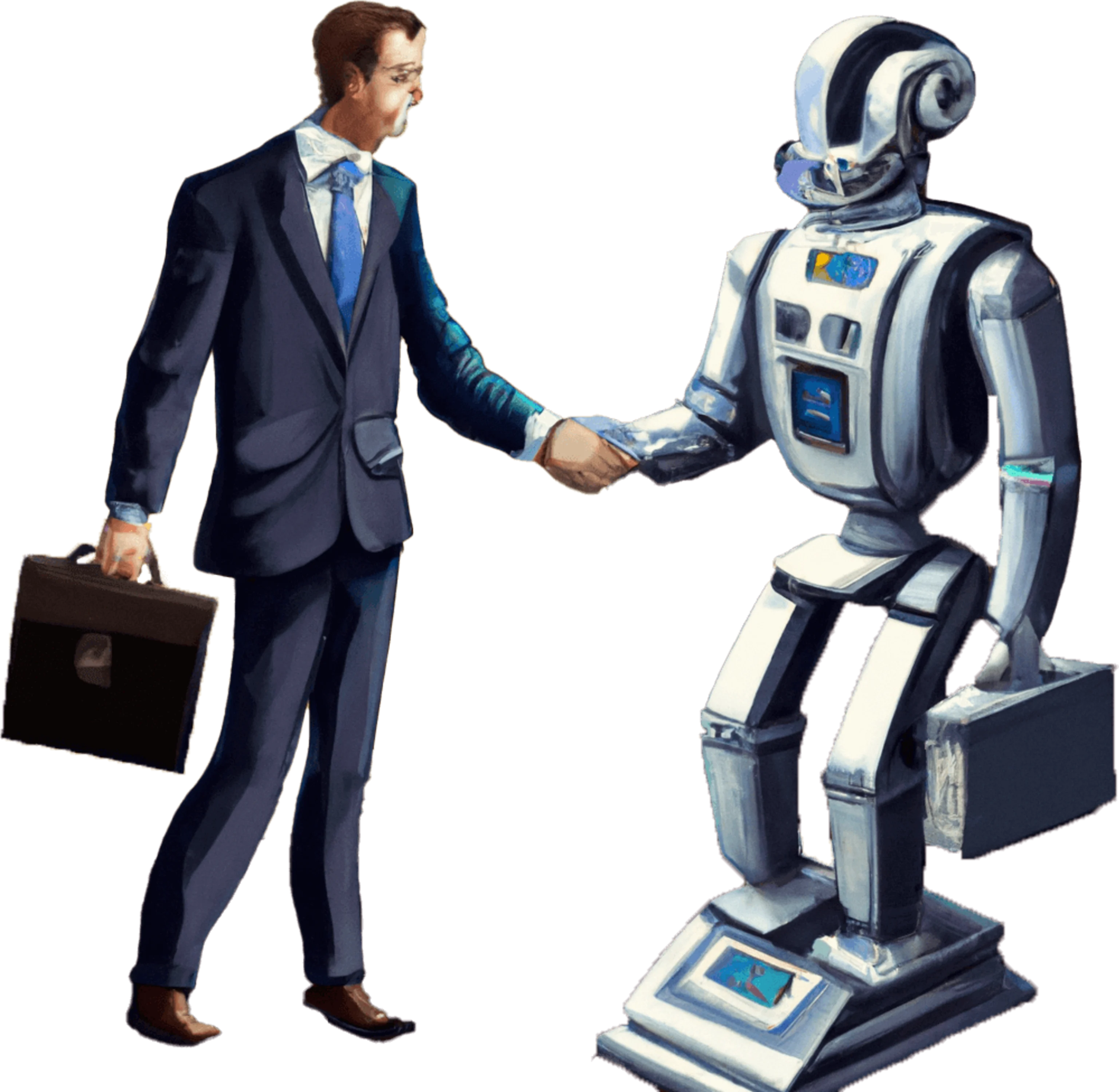
Linden Grigg
The TikTok Data Tizz - should you be worried?
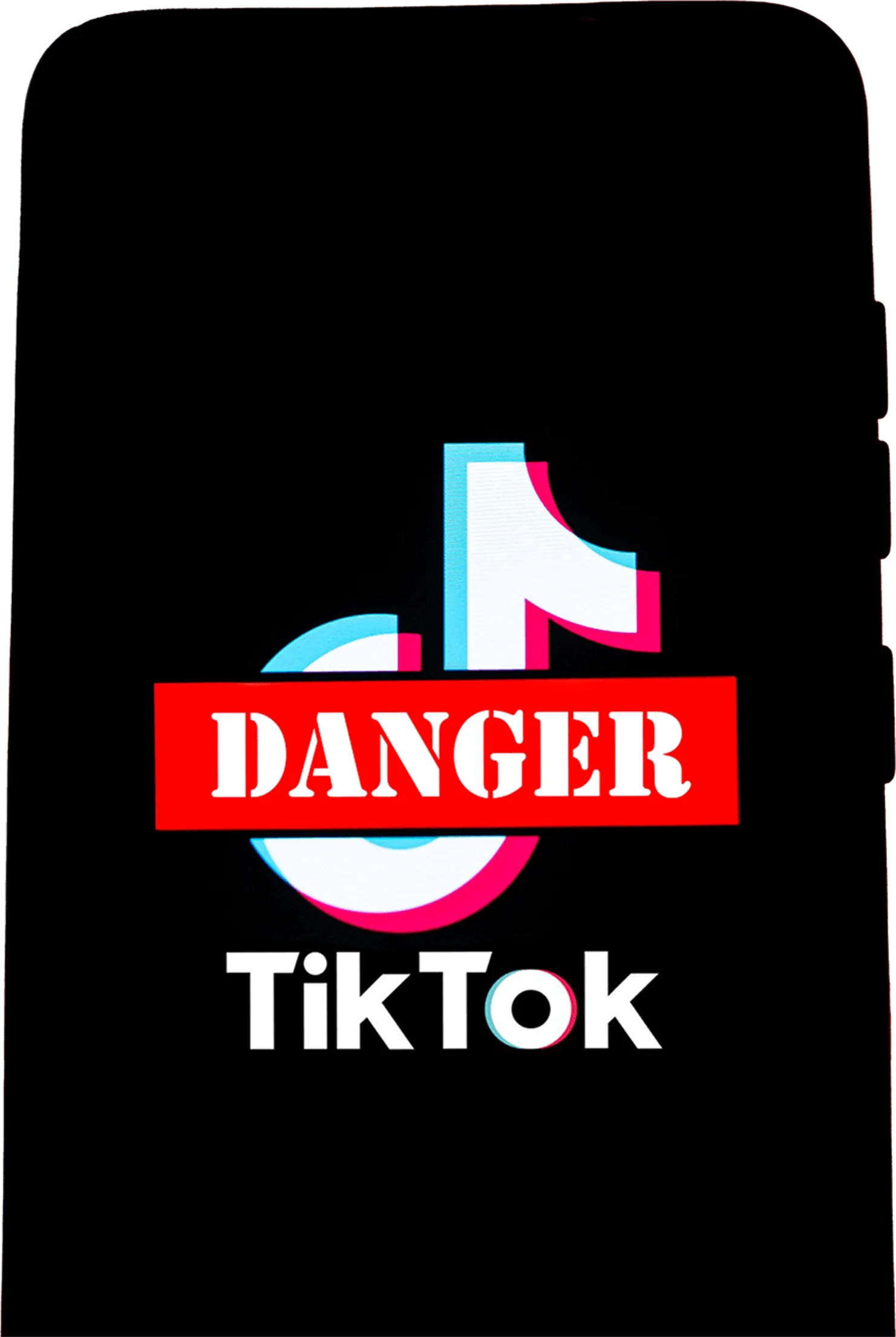
Alistair Maxwell
Do you need a Digital Detox?
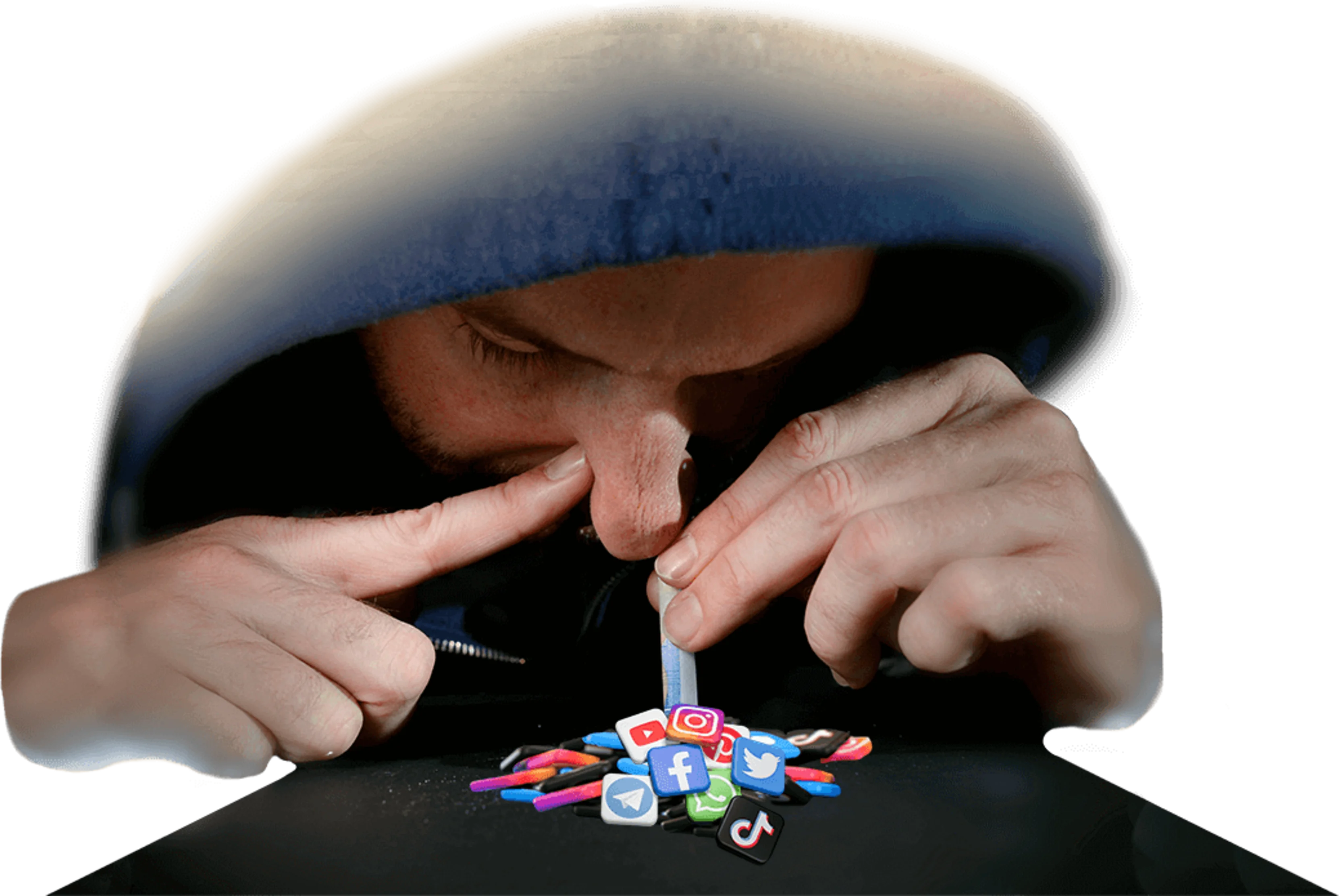
Jordan Mort
Weekly emails
Get more from Lauren
The Fledger was born out of a deep-seated belief in the power of young voices. Get relevant views on topics you care about direct to your inbox each week.
Write at The Fledger
Disagree with Lauren?
Have an article in mind? The Fledger is open to voices from all backgrounds. Get in touch and give your words flight.
Write the Contrast
